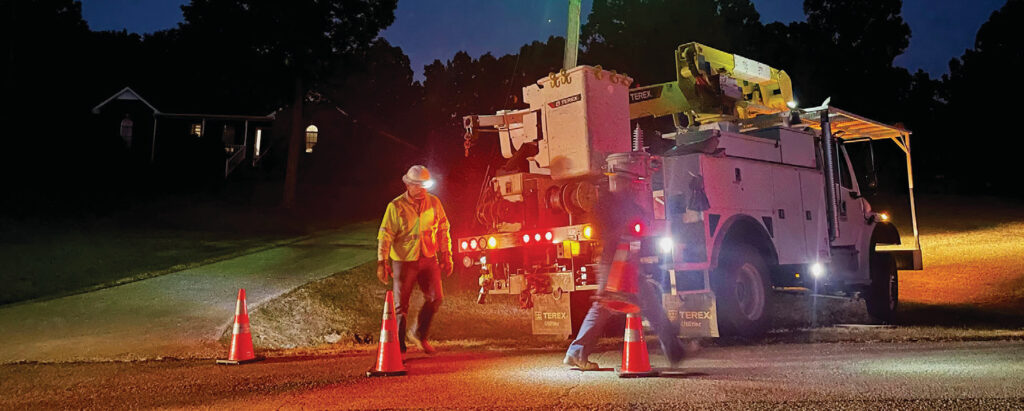
Electric lineworker is consistently ranked among the most dangerous jobs in America. While its exact position on various lists of “the most dangerous jobs” fluctuates, it typically lands somewhere between nine and 12. There are obvious reasons for this ranking that include working high above the ground near high voltage.
It might surprise you, however, to learn that these are not necessarily the riskiest parts of lineworkers’ jobs. Their work frequently takes place along the side of the road, placing them only feet from passing vehicles.
Duck River Electric Membership Corporation’s Tommy Campbell knows these dangers all too well. In January of 2006 Tommy was a lineman for the co-op when he was struck by a vehicle in Decherd. Tommy was thrown onto the hood and windshield of the passing car and then up into the air.
The accident required major surgery to his left ankle and foot, including four pins, two screws and a 6-inch rod. “I was very concerned about being able to continue line work,” said Campbell. “I knew my foot was severely injured. Line work has been in my family for years. My dad was a lineman. That’s what I loved doing.”
Fortunately, Tommy recovered and today manages the co-op’s office in Sewanee.
In 2006 Tennessee became the 30th state in the nation to enact a Move Over Law to create a zone of protection around first responders like police officers, firefighters and paramedics. In 2011, a coalition of Tennessee’s electric utilities advocated for the state’s Move Over Law to be expanded to include electric utility workers.
The requirements of the law are fairly simple. When passing a roadside utility crew, slow down and move over into the farthest lane when possible. And if there is no lane available or it unsafe to move over, reduce your speed.
Lineworkers perform a vital service to our communities. They literally risk their wellbeing to ensure our own. Slowing down and giving them room to work is not only the law of Tennessee, it is common courtesy and a way to show respect for those who serve us each day.



